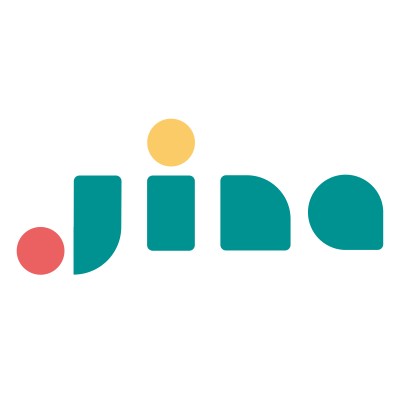The Rise of Open Source Search Agents: A New Era in Information Retrieval
February 6, 2025, 12:14 pm

Location: United States, California, San Francisco
Employees: 201-500
Founded date: 2015
Total raised: $18.21B
In the fast-paced world of technology, innovation often springs from inspiration. Recently, the engineering team at Hugging Face took a bold leap, crafting their own version of OpenAI's DeepResearch agent in just 24 hours. This endeavor highlights a growing trend: the rise of open-source search agents that aim to redefine how we retrieve information online.
Hugging Face's new search agent is not just a simple tool. It’s a digital sleuth, capable of autonomously scouring the web. Imagine a tireless detective, sifting through pages, extracting valuable insights, and presenting them in a digestible format. This agent can download files, analyze them, and aggregate findings into coherent responses. It’s a game-changer for researchers and casual users alike.
The backbone of this project is CodeAgent. This clever assistant translates complex actions into code. Think of it as a translator between human intent and machine understanding. By expressing actions in code, the team believes they can enhance efficiency. Long sequences of tasks become streamlined, like a well-oiled machine.
To further bolster performance, Hugging Face leveraged tools from Microsoft Research. One of these is a text-based browser. While it may seem rudimentary, this choice was strategic. A text-only interface simplifies the analysis for neural networks. It’s like giving a chef only the essential ingredients to create a masterpiece. The team plans to evolve this into a visual browser, making it more user-friendly in the future.
Another key component is the text inspector. This tool is crucial for extracting useful information from various file types. Whether it’s HTML, PDF, or DOCX, the inspector can handle it. However, it’s worth noting that images remain outside its reach. This limitation is a reminder that while technology advances, it still has its boundaries.
The results of Hugging Face's search agent are promising. It achieved a 67% accuracy rate on the GAIA benchmark and 55% on Magentic-One. These figures indicate a solid foundation, but there’s room for improvement. The code for this implementation is now available on GitHub, inviting developers to contribute and refine the project further.
Meanwhile, another developer, known as mshumer, has introduced Open Deep Researcher. This open-source alternative also aims to replicate OpenAI's deep search functionality. It’s a relentless seeker, continuing its quest for information until it believes it has uncovered everything necessary.
Open Deep Researcher employs a mix of powerful services. OpenRouter API helps generate queries and assess the relevance of found pages. SERPAPI sends requests to Google, while Jina extracts data from web pages. Together, they form a robust framework for information retrieval.
The system operates asynchronously, enhancing speed and efficiency. It’s like a well-coordinated team, each member working simultaneously towards a common goal. By using the Claude 3.5 Haiku language model, the agent refines its queries at each step, ensuring the most relevant results surface.
Open Deep Researcher is accessible via Google Colab, making it easy for users to get started. A simple cloning process and a few API key inputs are all it takes. This accessibility is a significant advantage, democratizing advanced search capabilities for anyone willing to dive in.
The emergence of these open-source search agents signals a shift in how we interact with information. No longer are we passive consumers; we are active participants in the search process. These tools empower users to dig deeper, uncovering insights that may have otherwise remained hidden.
As these technologies evolve, they will likely become more sophisticated. Future iterations may incorporate advanced machine learning techniques, enhancing their ability to understand context and nuance. Imagine a search agent that not only finds information but also understands the intent behind your queries. The possibilities are exciting.
However, with great power comes great responsibility. As these tools become more prevalent, ethical considerations will come to the forefront. How do we ensure that the information retrieved is accurate and unbiased? What safeguards can be put in place to prevent misuse? These questions will need to be addressed as the landscape of information retrieval transforms.
In conclusion, the development of open-source search agents like those from Hugging Face and mshumer marks a significant milestone in technology. They represent a shift towards more autonomous, efficient, and user-friendly information retrieval systems. As we stand on the brink of this new era, one thing is clear: the future of searching is bright, and it’s just getting started. The digital world is a vast ocean of knowledge, and these agents are our new ships, ready to navigate its depths.
Hugging Face's new search agent is not just a simple tool. It’s a digital sleuth, capable of autonomously scouring the web. Imagine a tireless detective, sifting through pages, extracting valuable insights, and presenting them in a digestible format. This agent can download files, analyze them, and aggregate findings into coherent responses. It’s a game-changer for researchers and casual users alike.
The backbone of this project is CodeAgent. This clever assistant translates complex actions into code. Think of it as a translator between human intent and machine understanding. By expressing actions in code, the team believes they can enhance efficiency. Long sequences of tasks become streamlined, like a well-oiled machine.
To further bolster performance, Hugging Face leveraged tools from Microsoft Research. One of these is a text-based browser. While it may seem rudimentary, this choice was strategic. A text-only interface simplifies the analysis for neural networks. It’s like giving a chef only the essential ingredients to create a masterpiece. The team plans to evolve this into a visual browser, making it more user-friendly in the future.
Another key component is the text inspector. This tool is crucial for extracting useful information from various file types. Whether it’s HTML, PDF, or DOCX, the inspector can handle it. However, it’s worth noting that images remain outside its reach. This limitation is a reminder that while technology advances, it still has its boundaries.
The results of Hugging Face's search agent are promising. It achieved a 67% accuracy rate on the GAIA benchmark and 55% on Magentic-One. These figures indicate a solid foundation, but there’s room for improvement. The code for this implementation is now available on GitHub, inviting developers to contribute and refine the project further.
Meanwhile, another developer, known as mshumer, has introduced Open Deep Researcher. This open-source alternative also aims to replicate OpenAI's deep search functionality. It’s a relentless seeker, continuing its quest for information until it believes it has uncovered everything necessary.
Open Deep Researcher employs a mix of powerful services. OpenRouter API helps generate queries and assess the relevance of found pages. SERPAPI sends requests to Google, while Jina extracts data from web pages. Together, they form a robust framework for information retrieval.
The system operates asynchronously, enhancing speed and efficiency. It’s like a well-coordinated team, each member working simultaneously towards a common goal. By using the Claude 3.5 Haiku language model, the agent refines its queries at each step, ensuring the most relevant results surface.
Open Deep Researcher is accessible via Google Colab, making it easy for users to get started. A simple cloning process and a few API key inputs are all it takes. This accessibility is a significant advantage, democratizing advanced search capabilities for anyone willing to dive in.
The emergence of these open-source search agents signals a shift in how we interact with information. No longer are we passive consumers; we are active participants in the search process. These tools empower users to dig deeper, uncovering insights that may have otherwise remained hidden.
As these technologies evolve, they will likely become more sophisticated. Future iterations may incorporate advanced machine learning techniques, enhancing their ability to understand context and nuance. Imagine a search agent that not only finds information but also understands the intent behind your queries. The possibilities are exciting.
However, with great power comes great responsibility. As these tools become more prevalent, ethical considerations will come to the forefront. How do we ensure that the information retrieved is accurate and unbiased? What safeguards can be put in place to prevent misuse? These questions will need to be addressed as the landscape of information retrieval transforms.
In conclusion, the development of open-source search agents like those from Hugging Face and mshumer marks a significant milestone in technology. They represent a shift towards more autonomous, efficient, and user-friendly information retrieval systems. As we stand on the brink of this new era, one thing is clear: the future of searching is bright, and it’s just getting started. The digital world is a vast ocean of knowledge, and these agents are our new ships, ready to navigate its depths.

